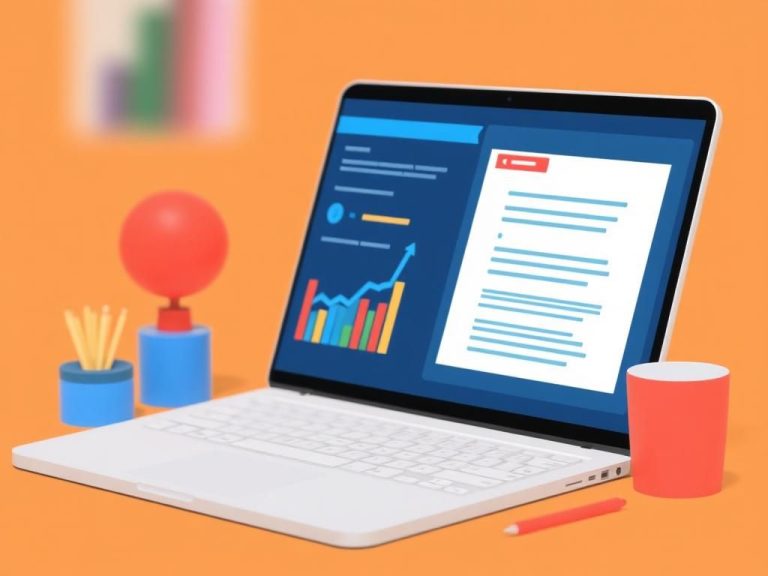In today’s fast-paced world, productivity is paramount. Many professionals struggle to manage their schedules effectively, often overwhelmed by the sheer volume of tasks and meetings. Fortunately, AI scheduling assistants have emerged as a game-changer in the realm of time management. These intelligent tools not only streamline the scheduling process but also enhance productivity by automating mundane tasks and allowing users to focus on what truly matters. In this article, we’ll explore how AI scheduling assistants can maximize efficiency in both personal and professional environments.
Understanding AI Scheduling Assistants
AI scheduling assistants are software applications that utilize artificial intelligence and machine learning algorithms to automate and optimize the scheduling of meetings, appointments, and tasks. They work by analyzing user preferences, availability, and priorities to suggest the best possible times for meetings and events. Some popular AI scheduling tools include:
- Calendly
- x.ai
- Clara
- Google Calendar with Assistant
- Microsoft Bookings
The Benefits of Using AI Scheduling Assistants
1. Time Savings
One of the most significant advantages of AI scheduling assistants is the amount of time they save. By automating the tedious back-and-forth of scheduling, these tools enable users to allocate their time more effectively. For instance:
- Automatic scheduling: Instead of manually coordinating schedules with multiple participants, AI can find and suggest optimal meeting times based on everyone’s availability.
- Quick rescheduling: If a participant can’t make a meeting, AI can efficiently propose alternative times without the need for lengthy email threads.
- Time zone adjustments: AI can automatically account for time zone differences when scheduling meetings across locations.
2. Enhanced Organization
AI scheduling assistants excel at organizing and categorizing events, leading to a more structured calendar. Here’s how they improve organization:
| Feature | Description |
|---|---|
| Smart categorization | Automatically categorizes meetings into groups (e.g., work, personal, urgent) for quick reference. |
| Color coding | Allows users to assign colors to different types of events, making the calendar visually intuitive. |
| Integrated notifications | Provides reminders and alerts for upcoming meetings or deadlines, ensuring users never miss important events. |
3. Improved Communication
Effective communication is key to any successful collaboration, and AI scheduling assistants facilitate this in several ways:
- Seamless integration: Most AI scheduling tools integrate with popular communication platforms like Slack, Zoom, and Microsoft Teams, allowing users to schedule meetings directly from their preferred app.
- Meeting details: AI can automatically include necessary details (e.g., agendas, links) when sending out invites, ensuring everyone is on the same page.
- Follow-up reminders: After a meeting, AI can send follow-up reminders to participants about action items or deadlines.
Implementing AI Scheduling Assistants in Your Workflow
To fully leverage the benefits of AI scheduling assistants, consider the following steps for effective implementation:
1. Choose the Right Tool
Evaluate different AI scheduling tools based on your specific needs. Factors to consider include:
- User interface and experience
- Integration capabilities with other software
- Customization options
- Pricing and value for money
2. Train the AI
Once you’ve chosen a tool, spend time training the AI to understand your preferences, such as:
- Your typical working hours
- Preferred meeting durations
- Types of events you usually schedule
3. Monitor and Adjust
Regularly assess the effectiveness of the AI scheduling assistant and make necessary adjustments to improve its performance. Keep track of:
- Time saved on scheduling tasks
- Feedback from participants on the scheduling process
- Overall satisfaction with the tool
Challenges and Considerations
While AI scheduling assistants offer many benefits, there are some challenges to be aware of:
1. Reliability of AI
AI is not infallible. Occasionally, it may misinterpret availability or neglect to account for user preferences. It’s essential to review schedules generated by AI to ensure accuracy.
2. Privacy Concerns
As with any digital tool, privacy and data security are paramount. Assess the privacy policies of AI scheduling tools and ensure they comply with regulations such as GDPR.
Conclusion
Incorporating AI scheduling assistants into your workflow can significantly enhance productivity and streamline time management. By automating mundane scheduling tasks, these tools allow professionals to focus on more impactful work. As AI technology continues to evolve, we can expect even greater advancements in how we manage our time. Embracing AI scheduling is not just a trend; it’s a proactive step towards maximizing efficiency in an increasingly busy world.
FAQ
What are AI scheduling assistants?
AI scheduling assistants are software tools that use artificial intelligence to automate the process of scheduling meetings, appointments, and events, making it easier to manage time effectively.
How can AI scheduling assistants improve productivity?
AI scheduling assistants can improve productivity by reducing the time spent on back-and-forth communication for scheduling, automatically suggesting optimal meeting times, and integrating with calendars to avoid conflicts.
Are AI scheduling assistants easy to use?
Yes, most AI scheduling assistants are user-friendly and designed to integrate seamlessly with existing calendars and communication tools, making them accessible for users of all skill levels.
Can AI scheduling assistants handle multiple time zones?
Absolutely! Many AI scheduling assistants are equipped to manage multiple time zones, allowing users to easily schedule meetings with participants from different locations.
What features should I look for in an AI scheduling assistant?
Key features to look for include calendar integration, availability detection, time zone management, automated reminders, and user-friendly interfaces.
How secure is my data with AI scheduling assistants?
Reputable AI scheduling assistants prioritize data security, employing encryption and compliance with data protection regulations to ensure your information is safeguarded.




